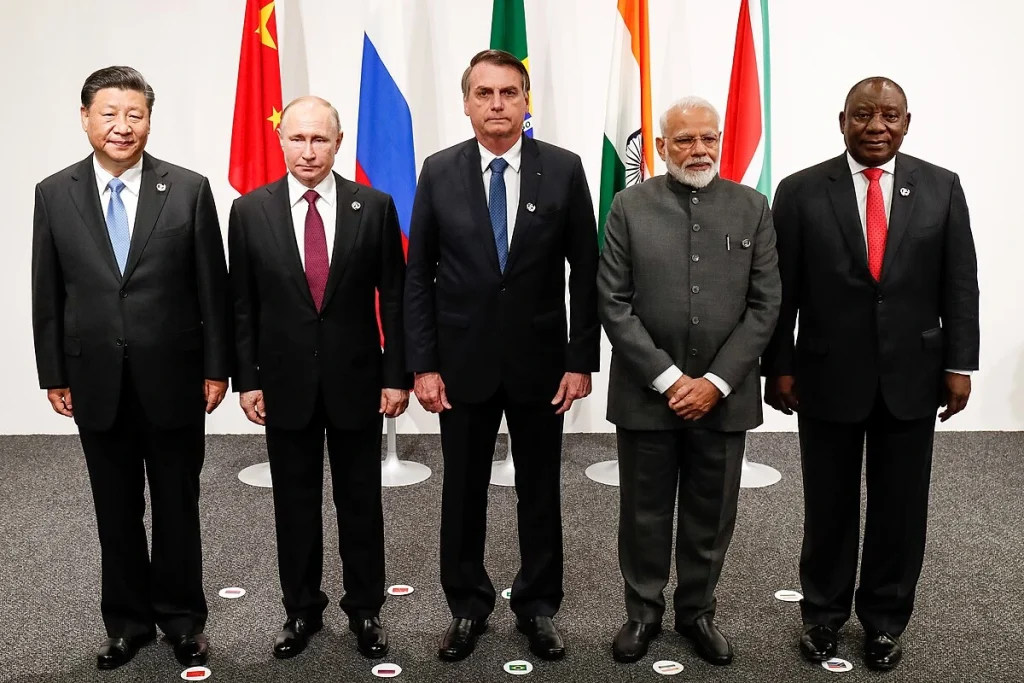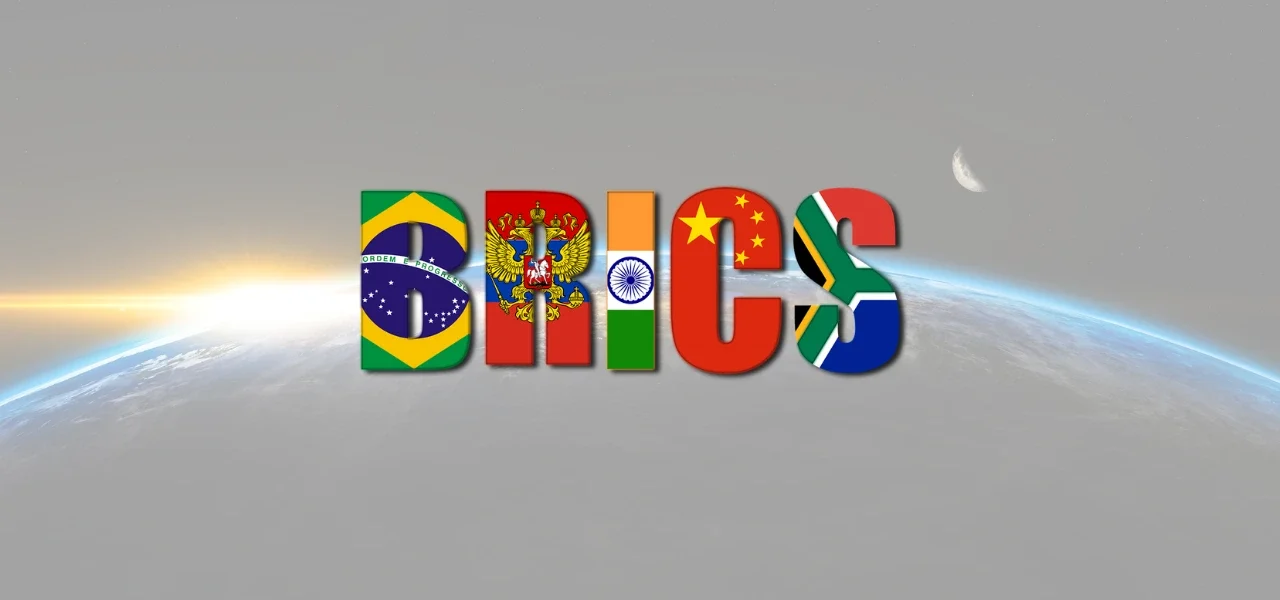BRICS: A Rising Global Powerhouse
A Brief Introduction on BRICS
The BRICS group, comprising Brazil, Russia, India, China, and South Africa, has emerged as a significant global economic and political force. United by their shared experiences as emerging economies and their aspirations for a more equitable global order, the BRICS nations have collectively challenged the traditional Western-dominated world order.
The 15th BRICS Summit

The 15th BRICS Summit, hosted by South Africa in August 2023, was a significant milestone for the group. It marked a period of expansion and increased global influence for the bloc. Here are some key details:
Expansion of the BRICS Group
One of the most significant outcomes of the summit was the expansion of the group to include six new members: Argentina, Egypt, Ethiopia, Iran, Saudi Arabia, and the United Arab Emirates. This expansion signifies the growing global appeal of BRICS and its potential to reshape the global geopolitical landscape.
Economic Cooperation and De-Dollarization
BRICS nations continue to prioritize economic cooperation and integration. The summit focused on:
- Local Currency Transactions: To reduce reliance on the US dollar, members discussed increasing the use of local currencies in bilateral trade.
- Trade and Investment: Efforts to boost intra-BRICS trade and investment were emphasized to strengthen economic ties.
- Financial Cooperation: The New Development Bank (NDB) continues to play a crucial role in financing infrastructure and development projects within the BRICS bloc and beyond.
Global Governance and Geopolitical Influence
BRICS nations have been increasingly vocal about reforming the global governance system. The summit highlighted the need for a more equitable and multipolar world order. Key areas of focus included:
- Reform of International Financial Institutions: BRICS nations called for reforms in institutions like the IMF and World Bank to reflect the changing global economic landscape.
- South-South Cooperation: The group emphasized the importance of South-South cooperation to address global challenges and promote shared prosperity.
- Climate Change and Sustainable Development: BRICS nations discussed their commitment to addressing climate change and promoting sustainable development.
The BRICS New Development Bank (NDB)
The New Development Bank (NDB) is a multilateral development bank established by the BRICS nations (Brazil, Russia, India, China, and South Africa) 1 in 2014. It was created as an alternative to traditional Western-dominated financial institutions like the World Bank and the International Monetary Fund 2 (IMF).
- Equitable Representation: The NDB’s governance structure ensures equitable representation of all member countries.
- Focus on Infrastructure: The bank prioritizes projects related to infrastructure development, including transportation, energy, water, and urban development.
- Sustainable Development: The NDB emphasizes sustainable development principles, promoting environmentally friendly and socially responsible projects.
- Local Currency Transactions: The bank encourages the use of local currencies in its operations, reducing reliance on the US dollar.
The Future of BRICS
The future of BRICS is promising, with the group poised to play an increasingly important role in shaping the global economic and political landscape. Some key trends to watch include:
- Technological Advancements: BRICS countries are investing heavily in digital technologies, including artificial intelligence, 5G, and renewable energy. The group is emerging as a global innovation hub, with several countries fostering a culture of innovation and entrepreneurship.
- Economic Cooperation and Integration: BRICS nations are increasingly focused on expanding trade and investment among themselves, reducing reliance on traditional Western markets. The New Development Bank (NDB), established by BRICS nations, is expanding its operations to provide alternative financing for infrastructure and development projects in member countries and beyond.
- Geopolitical Influence: BRICS nations are challenging the traditional Western-dominated global order, advocating for a more multipolar world. The group is pushing for reforms in international financial institutions and promoting South-South cooperation.
While the BRICS nations face challenges such as geopolitical tensions, economic disparities, and global economic uncertainty, their collective strength and potential for future growth make them a force to be reckoned with. By leveraging their diverse strengths and shared aspirations, BRICS can contribute to a more equitable and sustainable global future.

